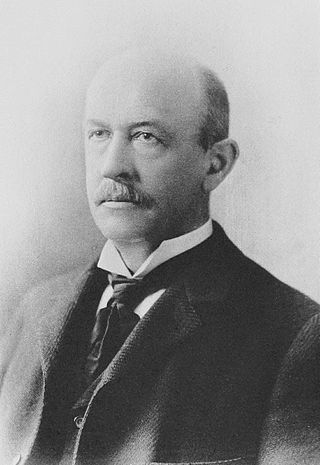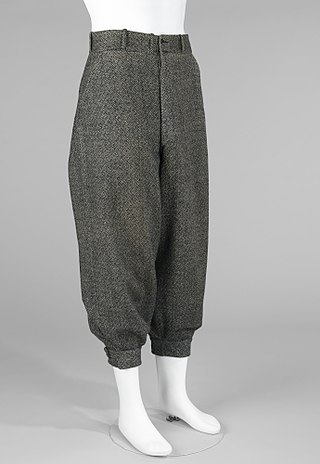
William Graham Sumner was an American clergyman, social scientist, and neoclassical liberal. He taught social sciences at Yale University, where he held the nation's first professorship in sociology and became one of the most influential teachers at any other major school.
Knickerbocker or Knickerbockers may also refer to:

The New York Journal-American was a daily newspaper published in New York City from 1937 to 1966. The Journal-American was the product of a merger between two New York newspapers owned by William Randolph Hearst: the New York American, a morning paper, and the New York Evening Journal, an afternoon paper. Both were published by Hearst from 1895 to 1937. The American and Evening Journal merged in 1937.

Joseph Ruttenberg, A.S.C. was a Ukrainian-born American photojournalist and cinematographer.

The Knickerbocker, or New-York Monthly Magazine, was a literary magazine of New York City, founded by Charles Fenno Hoffman in 1833, and published until 1865. Its long-term editor and publisher was Lewis Gaylord Clark, whose "Editor's Table" column was a staple of the magazine.

Count Igor Cassini Loiewski was a Russian-American syndicated gossip columnist for the Hearst newspaper chain. He was one of the journalists to write the Cholly Knickerbocker column.
Cholly is a given name or nickname that may refer to:
Albert Galloway Keller was a sociologist, author, and student and colleague of William Graham Sumner. He is best known as the editor of Sumner's papers, in numerous volumes, published in the early 20th century by the Yale University Press. He was a scholar in his own right and wrote on German colonial policy, economic geography, and sociology.

Knickerbockers are a form of baggy-kneed breeches, particularly popular in the early 20th-century United States. Golfers' plus twos and plus fours are similar.

Diedrich Knickerbocker is an American literary character who originated from Washington Irving's first novel, A History of New-York from the Beginning of the World to the End of the Dutch Dynasty, by Diedrich Knickerbocker (1809). He is a Dutch-American historian who is dressed in a specific type of baggy-kneed trousers referred to as knickerbockers, later shortened to knickers. The word knickerbocker is also used to refer to people who live in Manhattan, and was adopted in a shortened form as the Knicks by the city's NBA professional basketball team.
Cornelis is a Dutch form of the male given name Cornelius. Some common shortened versions of Cornelis in Dutch are Cees, Cor, Corné, Corneel, Crelis, Kees, Neel and Nelis.

William Hart Knickerbocker was an American shortstop in Major League Baseball for the Cleveland Indians (1933–36), St. Louis Browns (1937), New York Yankees (1938–40), Chicago White Sox (1941) and Philadelphia Athletics (1942). Knickerbocker threw and batted right-handed, stood 5 feet 11 inches (1.80 m) tall and weighed 170 pounds (77 kg).
Aileen Mehle, known by the pen name Suzy or Suzy Knickerbocker, was an American society columnist, active in journalism for over fifty years. Her column was syndicated to 100 newspapers and read by over 30 million people.

The Knickerbocker Buckaroo is a 1919 American silent Western/romantic comedy film directed by Albert Parker and starring Douglas Fairbanks, who also wrote and produced the film. The Knickerbocker Buckaroo is now considered lost.
Thomas Lennon was a screenwriter who wrote Frank Buck’s film, Jacaré, and a screen adaptation of the Maxwell Anderson play Knickerbocker Holiday.
Hartley is a surname. Notable people with the surname include:
Maury Henry Biddle Paul was an American journalist who became famous as a society columnist for the New York American. Writing under the pseudonym "Cholly Knickerbocker", he coined the term "Café Society". The name "Cholly Knickerbocker" was owned by the Hearst Newspaper Syndicate, and Paul was the first, writing under the nom de plume from 1917 until his death in 1942.
Knickerbocker, also spelled Knikkerbakker, Knikkerbacker, and Knickerbacker, is a surname that dates back to the early settlers of New Netherland that was popularized by Washington Irving in 1809 when he published his satirical A History of New York under the pseudonym "Diedrich Knickerbocker". The name was also a term for Manhattan's aristocracy "in the early days" and became a general term, now obsolete, for a New Yorker.
Screen & Radio Weekly was a nationally syndicated Sunday tabloid-newspaper-supplement published by the Detroit Free Press from 1934 to 1940 that covered film, radio, and fashion – and included a short story.








